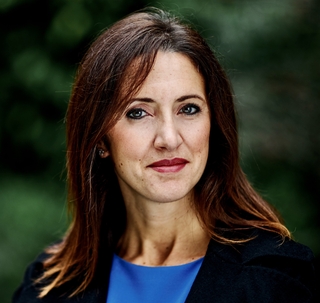Professor Taddeo is a Professor of Digital Ethics and Defence Technologies at the University of Oxford. She is also the Programme Director of the DPhil in Information, Communication and the Social Sciences at the Oxford Internet Institute and Dslt (Defence science and technology lab) Ethics Fellow at the Alan Turing Institute.
Her recent work focuses on the ethics and governance of digital technologies, and ranges from designing governance measures to leverage artificial intelligence (AI) to addressing the ethical challenges of using defence technology in defence, ethics of cybersecurity, and governance of cyber conflicts. She has published more than 150 articles in this area, focusing on topics like trustworthy digital technologies, governance of digital innovation, ethical governance of AI for national defence, ethics of cybersecurity (the complete list of her publications is available here). Her work has been published in major journals like Nature, Nature Machine Intelligence, Science, and Science Robotics.
Professor Taddeo has led, leads, and co-leads several projects in the area of Digital Ethics successfully. Most notably, she is the PI of a current project on the ‘Ethical Principles for the Use of AI for National Security and Defence’ funded by Dstl (the UK Defence Science and Technology Laboratory). She was Co-I in an EPSRC project, which funded the PETRAS IoT Research Hub. She was PI on a project funded by the NATO Cooperative Cyber Defence Centre of Excellence (CDD COE) to define ethical guidance for the regulation of cyber conflicts. Since 2017 she has been Co-PI on research projects developed at the Oxford Internet Institute such as ‘Digital Well-Being’; ‘The Ethics of Recommender Systems’; ‘Posthumous Medical Data Donation’.
Since 2022, she has served on the Ethics Advisory Panel of the UK Ministry of Defence. She was one of lead experts on the CEPS Task Force on ‘Artificial Intelligence and Cybersecurity’, CEPS is a major European think-tank informing EU policies on cybersecurity. Between 2018 and 2020 represented the UK of the NATO Human Factors and Medicine Exploratory Team (NATO HFM ETS) ‘Operational Ethics: Preparation and Interventions for the Future Security Environment’.
Since 2016, she serves as editor-in-chief of Minds & Machines (SpringerNature). Between 2016 and 2018, she was the Oxford Fellow at the Future Council for Cybersecurity of the World Economic Forum, helping to identify the ethical and policy cybersecurity problems that could impair the development of future societies. She has received multiple awards for her work on Digital Ethics, among which the 2010 Simon Award for Outstanding Research in Computing and Philosophy; the 2016 World Technology Award for Ethics. In 2018, InspiringFifty named her among the most inspiring 50 Italian women working in technology. In the same year, ORBIT listed her among the top 100 women working on the Ethics of AI globally, both in 2018 and 2020. She has been named one of the twelve 2020 “Outstanding Rising Talents” by the Womens’ Forum for Economy and Society. In 2020 and 2023, ComputerWeekly listed her among the top 100 most influential women in technology in the UK.
